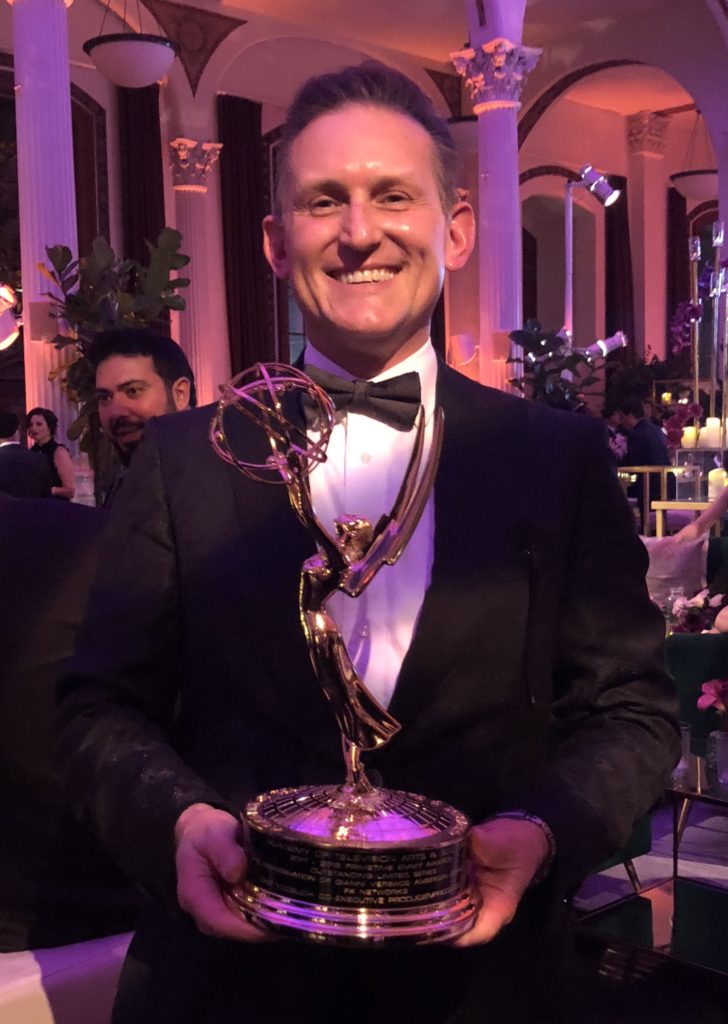
Alan Dorantes may be the most well-known, well-connected corporate in-house lawyer in Texas.
As a teenager, Dorantes had a San Antonio radio show and interviewed a group of teens who murdered a man. In college, he worked on the set of Oliver Stone’s Born of the Fourth of July. Later, he was Matthew Broderick’s stand-in and had a speaking role in the film adaptation of Horton Foote’s On Valentine’s Day. And he is almost certainly the only corporate lawyer in Texas who has won an award from the Academy of Television Arts & Sciences – an Emmy.
But none of that is why he is so well known today.
Dorantes is an assistant vice president and senior counsel for one of the largest corporate legal departments in the world – AT&T – for now. Dorantes recently informed AT&T that he is resigning and has accepted a new job as general counsel and chief of staff at Chicago-based Feeding America, which is the second largest charity in the U.S.
“This is an exciting opportunity for me, and it is a job that is definitely in my wheelhouse,” Dorantes told The Texas Lawbook in an exclusive interview.
Dorantes is widely recognized as one of the nation’s leading experts on diversity in the legal profession and is hip-deep in some of the most groundbreaking and difference-making public service projects in Texas.
And even though he is leaving, the Dallas-Fort Worth Chapter of the Association of Corporate Counsel and The Texas Lawbook are pleased to announce that he will be receiving the 2019 Senior Counsel of the Year Award for a Large Legal Department.
The award will be presented Jan. 30 at the George W. Bush Presidential Center and Institute.
Lawyers who toil beside Dorantes – including AT&T General Counsel David McAtee and AT&T Communication Chief Legal Officer Bruce Byrd – say that their colleague has the heart of a servant, the brain of a business leader and one of the best legal minds in North Texas.
“It is a huge privilege to work for a business whose leaders believe in being great corporate citizens and who strongly encourages us to give back to the community,” Dorantes said in a Texas Lawbook interview last year. “AT&T and David empower us to make a difference. It is our duty as lawyers to give back.”

“An accomplished transactional lawyer, Alan could have focused solely on that specialty,” says Norton Rose Fulbright partner Brett Govett. “But his commitment to diversity and inclusion runs so deep that he has devoted his career to promoting efforts to advance diversity within the legal profession.
“The tireless energy that he brings to these efforts is truly impressive,” Govett says. “He simply never stops working toward further advancements. Alan also walks the walk by devoting his time outside of work to diversity, inclusion and numerous charitable causes.”
Dorantes is co-chair of the AT&T Legal Department’s Diversity and Inclusion Committee, sits on the advisory board of the Institute for Inclusion in the Legal Profession, is a member of the SMU Dedman School of Law’s Executive Advisory Board and is on the board of The Arts Community Alliance.
Dorsey partner Mike Gruber says Dorantes’ “level of commitment and follow-through” are unparalleled.
“When Alan takes on a project, the commitment is in his bones,” Gruber says. “He is tireless in pushing an agenda and unwavering until the goal is achieved. On top of that he somehow makes it look easy, even in a crisis.
“Alan is the unusual individual who can identify a problem, create a plan to solve it, sell the plan to his team and inspire those working for him and with him to a successful conclusion,” Gruber says. “It is rare for someone in his position to have one or possibly two of these skills, but Alan has the entire package.”
Locke Lord partner Brian Cassidy agrees, adding the Dorantes takes “practical approaches” when tackling issues.
“Alan is a humble person who leads by example,” Cassidy says. “He is a creative problem-solver and a person of great integrity. Those characteristics make him a very effective attorney when seeking to advance his employer’s interest and a very effective leader when advancing a community interest.
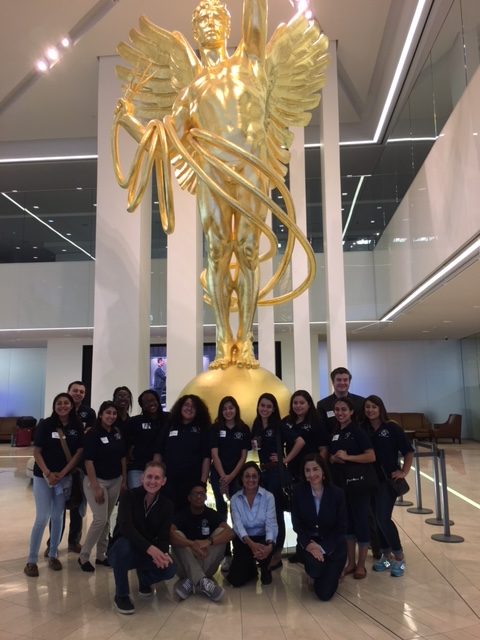
“Alan does not seek attention – only results – and that selfless approach makes it far more likely that those results will be achieved,” Cassidy says.
Dorantes was born and raised in San Antonio. His father was a music teacher who was passionate about classical music. His mom worked for the Texas Health and Human Services group and the SNAP and Lone Star Card program. His father’s parents came to the U.S. from Mexico, while his mother’s family were Czech immigrants settling south of San Antonio.
“With such a large family, I remembered always taking advantage of any of the free symphony concerts put on by the San Antonio Symphony,” he says. “Christmas always meant tamales and beans on Christmas Eve and kolaches and strudel on Christmas Day.”
Dorantes credits his high school English teacher, Rhonda Blaze Poling, for pushing him into leadership positions and encouraging him to engaged in leadership activities. He served on the student council officer and was a member of the Bexar County Teenage Crime Commission, which was an alternative court for nonviolent teen offenders with teen peers as the judges.
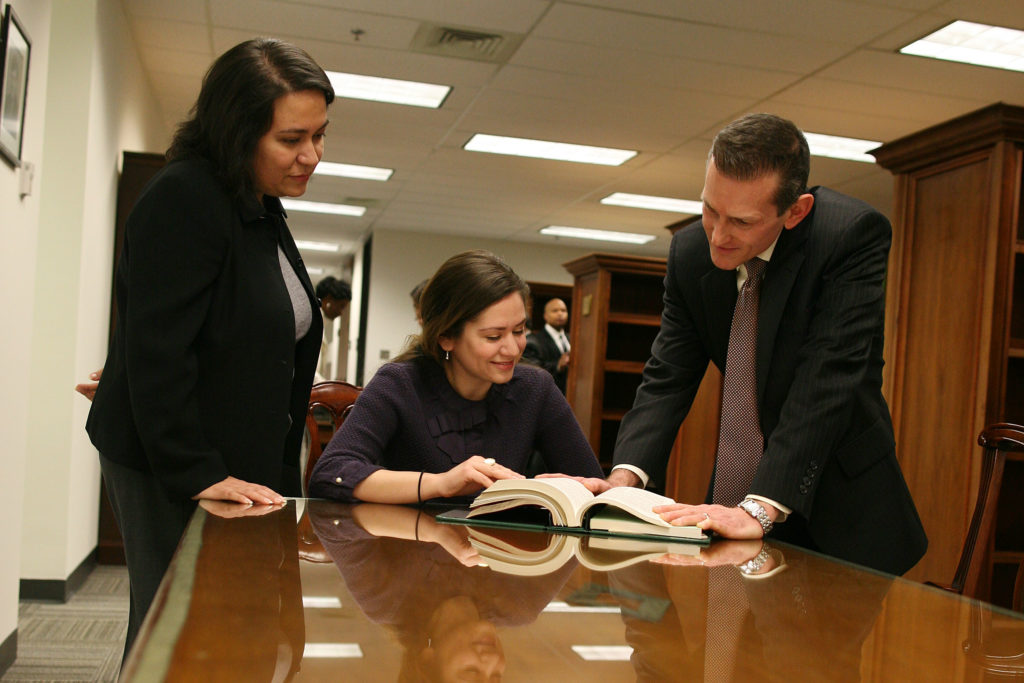
As a teenager, Dorantes worked a handful of jobs to make extra money, including a newspaper route in Alamo Heights and behind the counter at Baskin Robbins.
“As an ice cream lover – best job ever,” he says. “I also had a stint at Mr Gatti’s Pizza. I was always reprimanded for putting more than the allowed amount of toppings on the pizza.”
In high school, Dorantes and a friend cohosted a weekly radio show with called “TeenTalk.” The show aired during the community service time period on a local radio station with a predominantly black listener base.
“My biggest memory from that period was interviewing a group of teenagers who had murdered someone,” he says. “It was so interesting to pull together those radio shows.”
Recruiters from Southern Methodist University visited Dorantes’ high school during his senior year.
“I remember paging through the glossy brochure, seeing that beautiful campus and thinking, ‘I want to go there.’ I went to my guidance counselor and told her I wanted to apply,” he says.
His high school counselor advised against it, saying he would not “fit in” at SMU. But that made Dorantes more determined. He wasn’t able to attend SMU for his freshman year because of financial reasons, but he received the necessary aid for his sophomore year.
“I moved to Dallas started at the Meadows School of the Arts and majoring in film/television,” he says. “Incidentally, I recall being able to enjoy the last year of football at SMU before the death penalty. Seeing the ‘bigness’ of football at the school then and watching a sort of resurgence some 30 years later, is notable to me.”
At SMU, Dorantes’ passion for the movie industry flourished.
“The film business in Texas at the time was very active,” he says. “Trammel Crow had just built the Studios at Las Colinas and the State of Texas was giving great tax benefits to shoot in the state. This was at the high point of the television show Dallas. I wanted to learn more.”
Dorantes joined the school newspaper covering the “entertainment junket.” He interviewed several movie stars and directors for major films, including director Richard Donner (Superman and Lethal Weapon), playwright and screenwriter Horton Foote (To Kill a Mockingbird and Tender Mercies) and producer Martin Jurow (Terms of Endearment and Breakfast at Tiffany’s).
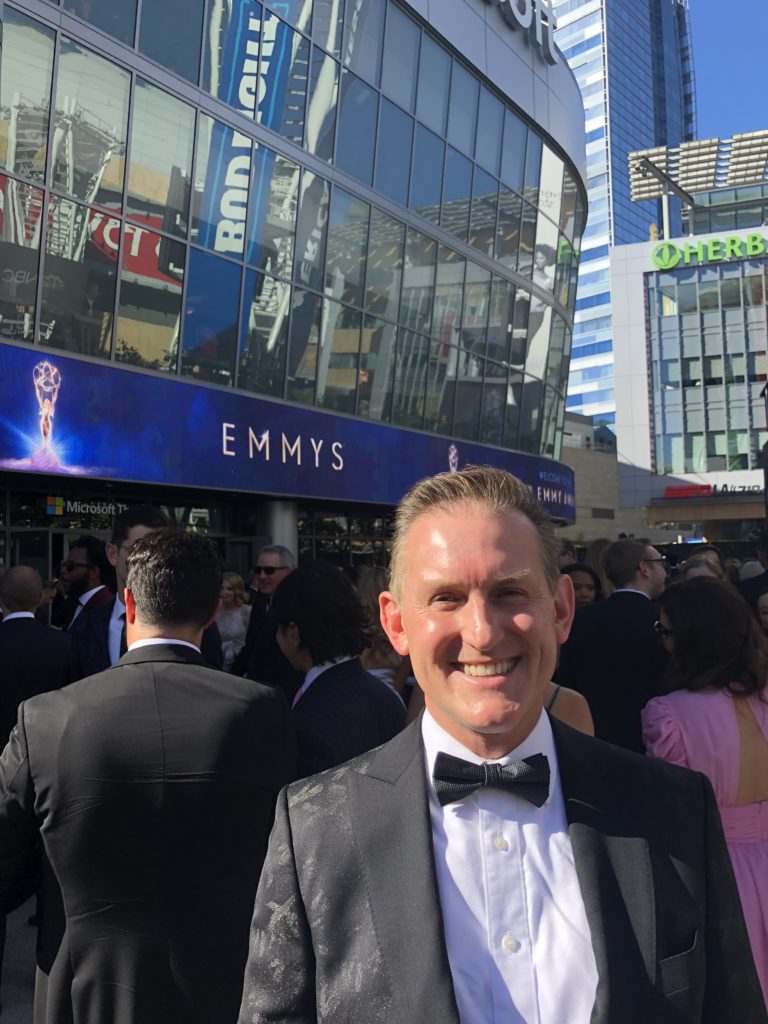
Oliver Stone hired Dorantes to be a production assistant on the set of Born on the Fourth of July starring Tom Cruise, which was shot in Waxahachie.
As a film student, Dorantes was required to produce a movie. He chose to focus on the story of an adopted girl who was beginning to question looking for her birth mother. The Gift, which he filmed in Forest Hills and Sea World in San Antonio, won the Academy of Television Arts & Science’s regional student film competition.
The 28-minute film was broadcast on several Texas PBS stations.
Dorantes scored an internship in the Academy’s business and legal affairs division.
“I had no lawyers in the family, and I can say I never met any lawyers until well into college,” he says.
But his time with the Academy changed that.
“The deeper I got into learning about the film business, the more I learned that many of those on the business side were lawyers – the producers, studio executives and agents were mostly lawyers,” he says. “Everyone I met in the film producing business seemed to be a lawyer. That’s when I made the decision to pursue law school and return to Dallas to attend SMU School of Law.”
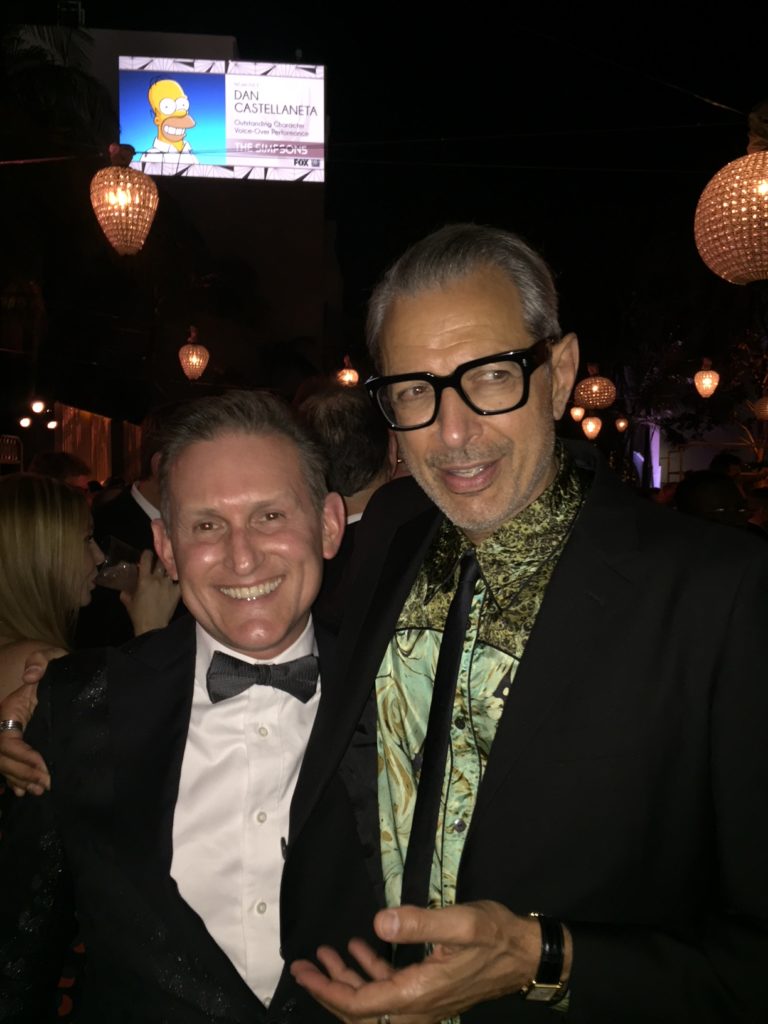
“I was determined to work in the ‘business,’ but the year was 1993 and the economy had its own ideas,” he says.
Instead, Dorantes started his legal career in 1994 as a lawyer in the legal department of Nextel Communications, which was a telecom startup based in Northern California.
“Nextel was building out their wireless network in Texas, and I was hired and sent back to Texas,” he says. “As the only lawyer in Texas, if an issue came up, you dealt with it. My position at Nextel expanded to a regional and then national role. “
Dorantes left Nextel in 2001 and joined Munsch Hardt, which was beginning a telecom practice. In 2003, he went back in-house to Cingular Wireless, which merged with AT&T in 2006.
During his 16 years at AT&T, Dorantes supported network real estate, retail sales, corporate real estate, government, health and education sales and most recently human resources, including the chief diversity office.
“AT&T legal gives you the wonderful ability to move around and support different business units,” he says. “I think I have enjoyed the corporate real estate work the most. I like buildings, architecture, dirt and even change-of-title work, because I get to see how far things go back in history.”
Retired AT&T General Counsel Wayne Watts established committees on diversity and inclusion subcommittee and pro bono.
Dorantes was attracted to both and quickly took leadership roles. Over the past few years, he has become one of the leading voices nationally on diversity, speaking at dozens of conferences a year.
D&I, he says, continues to be a daily struggle for the legal profession for multiple reasons, ranging from pipeline-related issues to a lack of understanding about the problem and a dearth of innovative solutions. He points to recent surveys showing that ethnic minorities have made very little progress in advancement in the legal profession.
“We need to be purposeful and thoughtful,” he says. “When something doesn’t work, try something different. Sometimes we need to shake things up.”
Dorantes says there’s a mindset in the legal community to just throw money at the problem. He points out that half of AT&T’s money committed to diversity efforts goes toward helping improve the pipeline. But he also notes the declining number of African Americans applying for law school as a key problem.
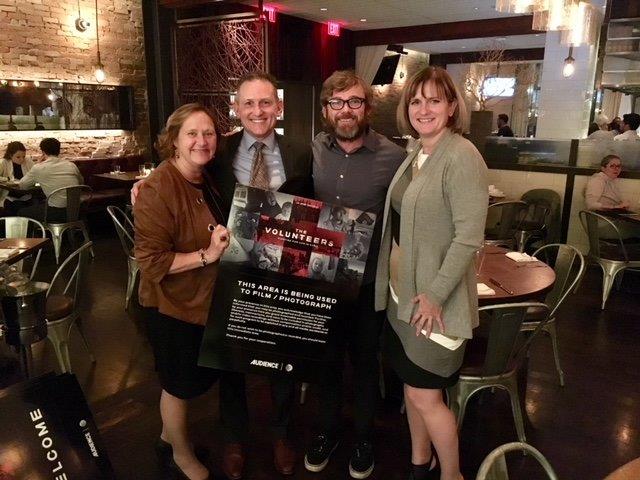
“Addressing the pipeline issue is the thing we believe will help move the needle the most – spending more money and time on scholarships and mentoring programs,” he says. “Law firms and companies need to realize that diversity is smart for business.
“We need to keep talking about it, even it is frustrating and seems like very little progress has been made,” he says. “It’s like going to church every once in a while. Hopefully, you will eventually get religion.”
Gruber says Dorantes has been an effective advocate for diversity because “he has had a foot on both sides of the line.
“Alan is a member of management and a legal department facing the tough decisions on hiring and promotion,” Gruber says. “But he also had to achieve his success beginning in a less enlightened era, where he had to work harder and be smarter to obtain the same opportunities as others.

“Alan brings an empathy and insight to a position of high leverage with a world-class company,” Gruber adds. “This also means that his efforts in diversity and pro bono are not academic exercises. They go right to the heart of who he is and where he came from.”
